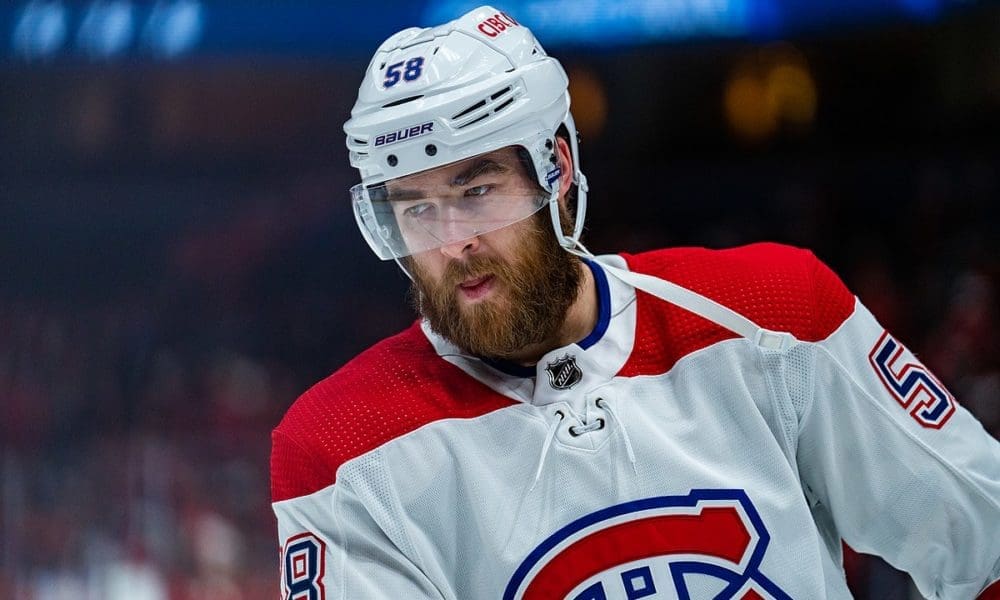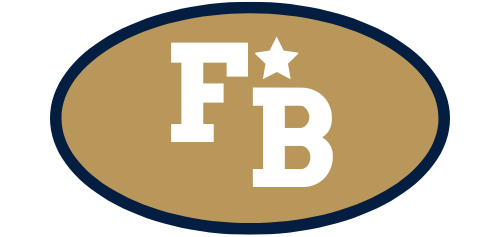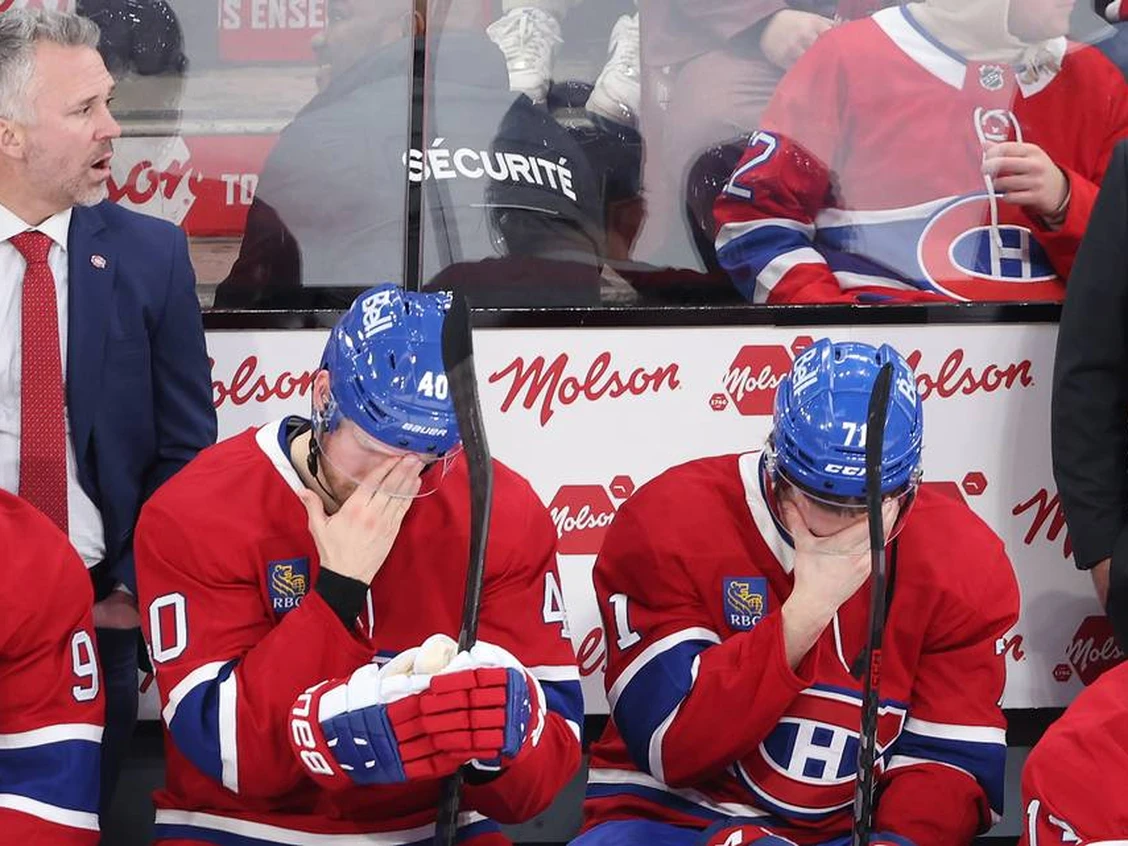There has been speculation about trading Jake Evans, as he would be an easy move if he doesn’t sign a new contract soon. Meanwhile, David Savard, Christian Dvorak, Brendan Gallagher, Josh Anderson, and Joel Armia continue to be mentioned in trade discussions. This raises the question: Are the Canadiens in a “soft sell” or “hard sell” mode leading up to the March 7 NHL trade deadline?
After going 1-7-1 in their last nine games and falling six points out of a wild-card spot—with four teams ahead of them chasing the final playoff berth—the Canadiens are now firmly in a “hard sell” position.
At his mid-season press conference, GM Kent Hughes reaffirmed his commitment to the team’s rebuilding plan, emphasizing the goal of building a long-term Stanley Cup contender. At that time, there were still 22 games left before the deadline, and he wanted to assess the team further. Since then, it has become clear that this roster isn’t strong enough to stay in playoff contention.

With Evans, Armia, Savard, and Dvorak all set to become unrestricted free agents on July 1, it’s now expected that they will be traded. Gallagher, 32, remains under contract for two more seasons with a $6.5 million cap hit, making a trade unlikely. Anderson, 30, also has two years left on his deal with a $5.5 million cap hit, and while there may be interest, Hughes won’t move him without a worthwhile return.
Earlier in the season, when the team was playing well, there was talk of keeping their UFAs for a potential playoff push. That’s no longer realistic, but the Laval Rocket currently lead the AHL standings. Some might argue that retaining the UFAs to help Laval’s playoff push—rather than promoting their top prospects—would be beneficial. However, trading those players would necessitate call-ups, and it would be preferable to see prospects like Owen Beck, Logan Mailloux, and Jakub Dobes contribute in Laval’s playoff run.
For Hughes and Jeff Gorton, the executive VP of hockey operations, the top priority remains the long-term future of the Canadiens. Moving the pending UFAs for assets is the best path forward. At the same time, they recognize the value of prospects gaining playoff experience in the AHL, which could factor into their trade deadline decisions. Balancing the NHL roster with player movement will require careful planning.
Laval’s success this season has been a bright spot, with first-year head coach Pascal Vincent leading the team to a 30-12-3 record. Gorton has praised Vincent’s steady approach and coaching ability.
Regarding Patrik Laine, could the Canadiens place him on waivers? If so, what would be the short- and long-term consequences? Alternatively, what happens if he is sent to Laval?
The Canadiens could waive Laine and assign him to Laval, similar to how they handled Joel Armia last season. That move served as a wake-up call for Armia, who has since improved his play and now holds trade value ahead of the deadline.
However, it’s unlikely Montreal would take the same approach with Laine. He has been a key part of their power play, scoring 10 of his 12 goals in 28 games. Laine’s contract runs through next season with an $8.7 million cap hit—the highest on the team. Montreal was able to acquire him from Columbus last summer, along with a 2026 second-round pick, by taking on his full contract. Ideally, Laine regains form before next year’s trade deadline, when his expiring contract could make him more attractive to other teams.
As for Ivan Demidov, could he join the Canadiens next season? And who might his linemates be?
Juraj Slafkovsky has posted 30 points (eight goals) in 53 games this season, just one fewer than Shane Wright, whom the Canadiens passed on at the 2022 draft. Wright has 31 points in 54 games while playing on Seattle’s third line and second power-play unit, averaging 13:32 of ice time. Slafkovsky, by contrast, plays on Montreal’s top line and power-play unit, averaging 16:52. Meanwhile, Logan Cooley, picked third overall by Arizona (now Utah), has 43 points in 50 games but is currently sidelined with an injury.
Demidov, who has 46 points (19 goals, 27 assists) in 54 games with SKA St. Petersburg in the KHL, appears to be a potential fit alongside Nick Suzuki and Cole Caufield after being selected fifth overall last year.
Lastly, why do Canadiens players struggle with shooting accuracy, given recent missed penalty shots, breakaways, and off-target attempts?
It’s a combination of factors: players gripping their sticks too tightly on a struggling team, bad luck, and a general lack of elite offensive skills. However, the Canadiens actually rank 15th in the NHL in missed shots (780), far behind the league-leading Carolina Hurricanes (1,061).
The bigger issue is Montreal’s lack of overall shots—they rank 30th in the NHL, averaging just 26 per game. Only Vancouver (25.5) and Chicago (24.8) generate fewer shots on goal.

